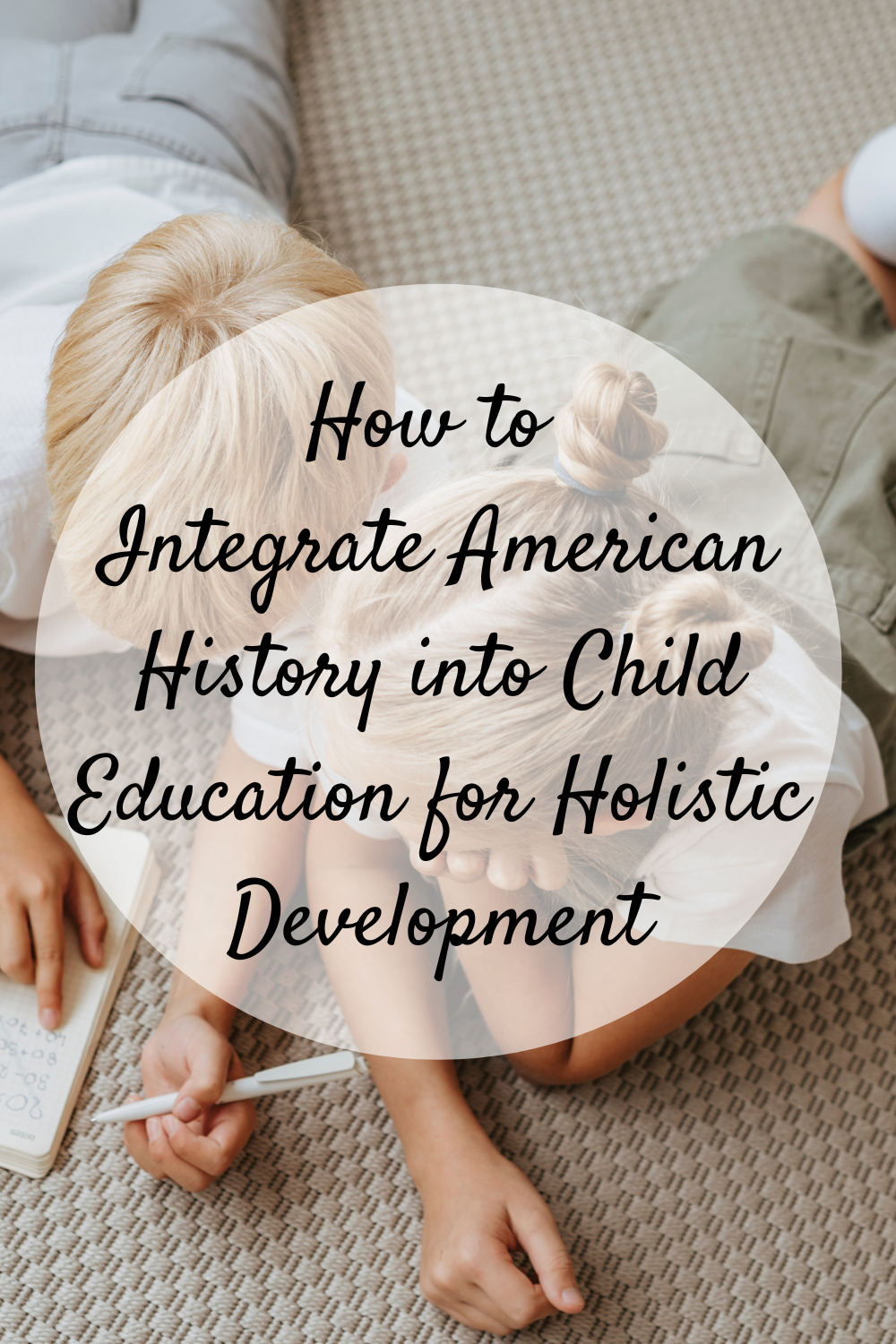
Holistic education, beyond traditional academics, is gaining momentum in educational circles. Schools increasingly recognize that students require more than a solid academic foundation.
It’s not just about memorizing dates and events; it’s about instilling a deep appreciation for the nation’s journey, its diverse tapestry of people, and the lessons that history imparts.
This shift in perspective is driven by a desire to enhance student outcomes and promote a more compassionate and well-rounded approach to education. Luckily, we will explore the profound impact of incorporating American history into childhood education and explain how it contributes to the holistic development of young learners.
The Importance Of Holistic Development For Children
Holistic development is a comprehensive approach to education and personal growth that recognizes individuals as multifaceted beings with interconnected dimensions. It aims to nurture every aspect of a person’s well-being, encompassing cognitive, emotional, social, physical, and even spiritual aspects.
In the context of childhood education, holistic development recognizes that children are more than just learners of academic subjects; they are unique individuals undergoing a journey of self-discovery and growth.
How Does Learning History Impact Holistic Development?
Teaching with the help of American history for kids books is like opening a treasure chest of knowledge and wisdom, profoundly impacting children’s holistic development. Children’s minds and hearts are enriched in various ways as they engage with historical narratives, contributing to their holistic growth.
Here are some reasons why history is imperative for kids to learn more about.
A Window into the Past
At the heart of American history education lies the ability to transport young learners into the past. It offers a captivating window through which children can peer into the lives, struggles, and triumphs of those who came before them. By expanding into historical narratives, children gain a richer understanding of the nation’s origins and the forces that have shaped it over centuries.
Fostering Critical Thinking Skills
One of the most significant benefits of incorporating American history into childhood education is cultivating critical thinking skills. History is not a static collection of facts but a dynamic tapestry woven with stories, perspectives, and interpretations.
When children engage with historical narratives, they learn to think critically, analyze evidence, and consider multiple viewpoints. These skills are invaluable in navigating the complexities of our world.
Building Empathy and Perspective
American history education is a potent tool for building empathy and perspective. It introduces children to the diverse array of individuals who have contributed to the nation’s narrative, often against the backdrop of adversity.
By immersing themselves in these stories, children develop empathy appreciating the struggles and triumphs of others. This heightened awareness of diverse experiences equips them to relate to people from different backgrounds and walks of life.
Inspiring Curiosity and Lifelong Learning
A well-rounded education in American history inspires curiosity and a love for lifelong learning. The stories of the past are rife with intrigue, heroism, and human drama, making history a subject that naturally captivates young minds. When history is presented as a narrative adventure rather than a dry list of facts, children are likelier to become enthusiastic, self-directed learners.
Fostering Civic Engagement
Understanding American history is crucial for fostering civic engagement. It equips children with the knowledge and understanding needed to participate actively in the civic life of their communities and their nation. This extends beyond voting and participating in elections; it encompasses becoming informed, engaged citizens who contribute to their communities and advocate for positive change.
Enhancing Communication Skills
Engaging with American history enhances communication skills. Studying history encourages students to express their thoughts and ideas clearly and persuasively. They practice articulating their viewpoints, listening to others, and supporting their arguments with evidence- skills that prove invaluable in various aspects of life.
Cultivating Resilience Through Historical Examples
Many historical narratives illustrate resilience in the face of adversity. By learning about individuals who overcame challenges, children are inspired to cultivate their resilience. They understand that setbacks are part of the human experience and that determination and perseverance can lead to personal growth and success.
Connecting Past and Present
Incorporating American history into childhood education bridges the past and the present. It allows children to connect historical events and contemporary issues, fostering a sense of relevance and context in their understanding of the world.
Nurturing a Sense of Citizenship
Lastly, American history education nurtures a sense of citizenship. Children see themselves as part of a broader community, whether it’s their local neighborhood, school, or nation. They develop a sense of responsibility toward their fellow citizens and a commitment to positively impacting their communities.
The More Your Kids Learn, the Better!
American history education is a strong catalyst for holistic development. It goes beyond textbooks and tests; it cultivates critical thinking, empathy, and a passion for learning. By immersing themselves in past stories, children become informed and engaged citizens, ready to contribute positively to their communities and the world.





